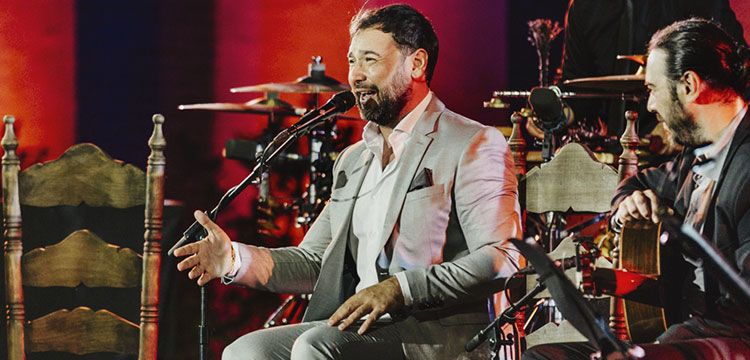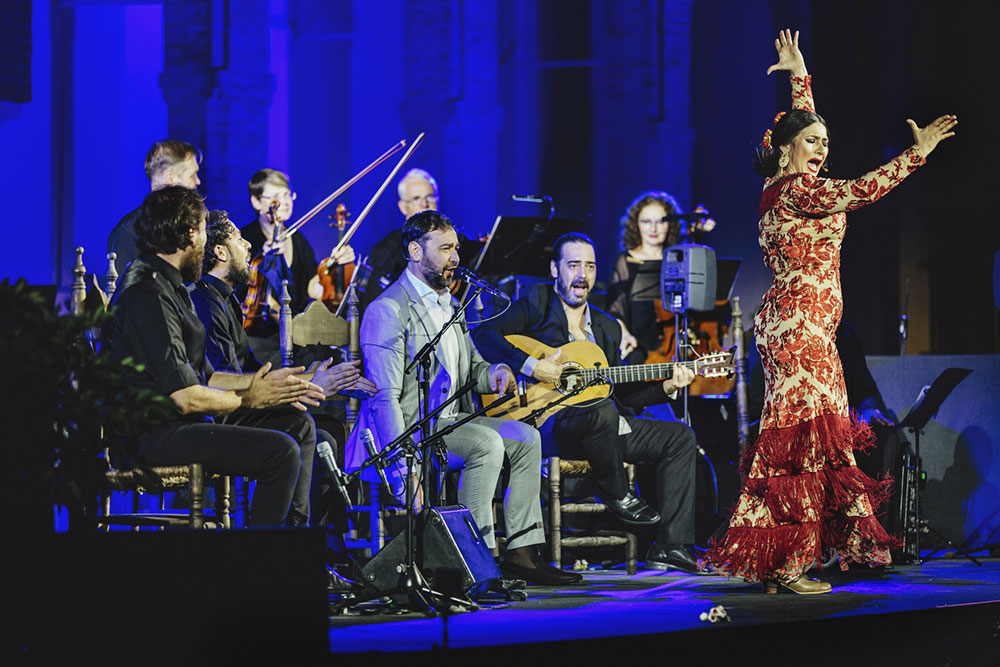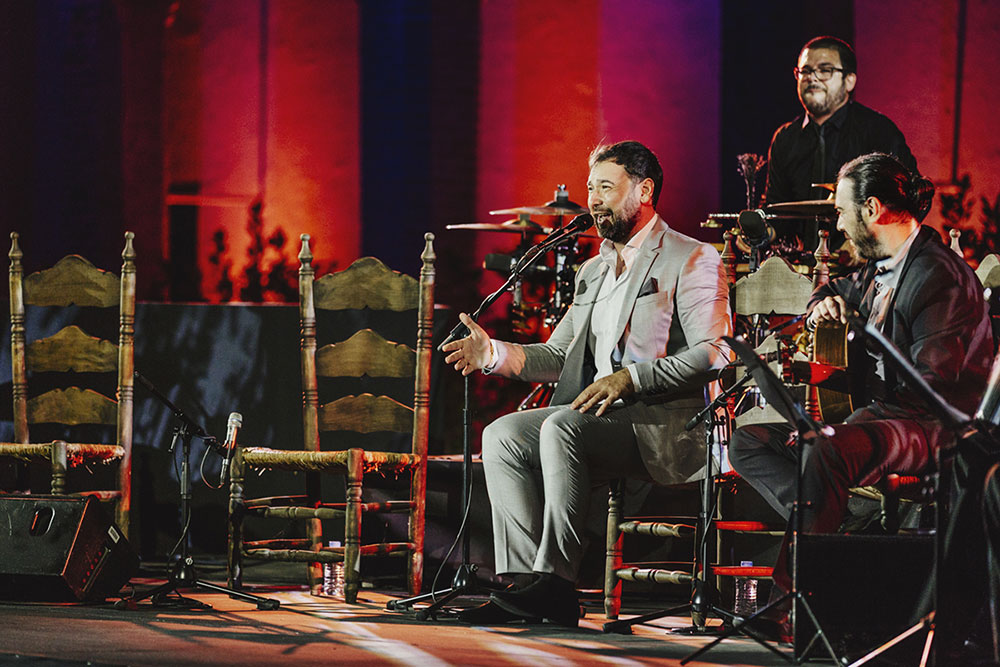Voice: José Valencia. Flamenco guitar: Juan Requena. Rhythm and percussion: Paco González. Accordion: Cuco Pérez. Violin: Nicolás ‘El Calabacín’. Dance: Karime Amaya. String quartet: Millenium Arts Ensemble: Vladimir Dmitienco, violin; Jill Renshaw, violin; Jacek Polinski, viola; Nonna Natsvlishvili, cello. Reales Alcázares de Sevilla. September 11th, 2018. Full house..
Sara Arguijo
José Valencia is, in addition to being a singer of incredible vocal qualities and deep knowledge of flamenco, an artist with numerous registers and a stage presence very few can top. And also an inspired flamenco artist who, far from taking the easy route, tirelessly seeks and searches.
For this reason, it’s impossible not to praise the challenge he’s taken on this year in the Bienal with Bashavel, a project in which he rescues and brings to flamenco texts from Romany poetry with the dedication of a fine craftsman. An exercise in bravery, constructed with absolute attention to detail, allowing us to enjoy a more reflexive and measured Valencia who seems to hold Juan Peña “Lebrijano” in his memory.
His voice delved into the low and middle tones transmitting emotion and giving true meaning to the compositions perfectly stitched together with the energetic and melancholic guitar of Juan Requena. Offering some especially beautiful moments with his repertoire of farruca, alegrías, bulerías and siguiriyas, not to mention a malagueña abandolao – the most applauded item – and a song of the Yugoslav poet Rajko Yurik sung in Romaní.
And yet, we can’t help wondering is this is the line where José finds the niche he’s been seeking for so many years as a solo singer. First of all, because here he delves into an area exploited by his contemporaries, and abandons another in which few individuals move with his command and self-assurance. And second of all, because there are important errors, such as the inclusion of Karime Amaya’s dance in an intimate work in which there was no way to justify her presence. Furthermore, the visceral approach of the dancer, and her own stage disposition completely broke the atmosphere of the work, forcing José to return to his role as singer for dance that should have been put on the back burner, subtracting the required elegance. In the same way, we find certain problems of vocalization in this work where the texts are a fundamental focal point.
Basically, we have to let José try things if he wants, and make mistakes. But with today’s need for passionate energetic singing with impetus and power, we sincerely hope Valencia doesn’t go soft on us.
Fotografías: Oscar Romero – La Bienal


